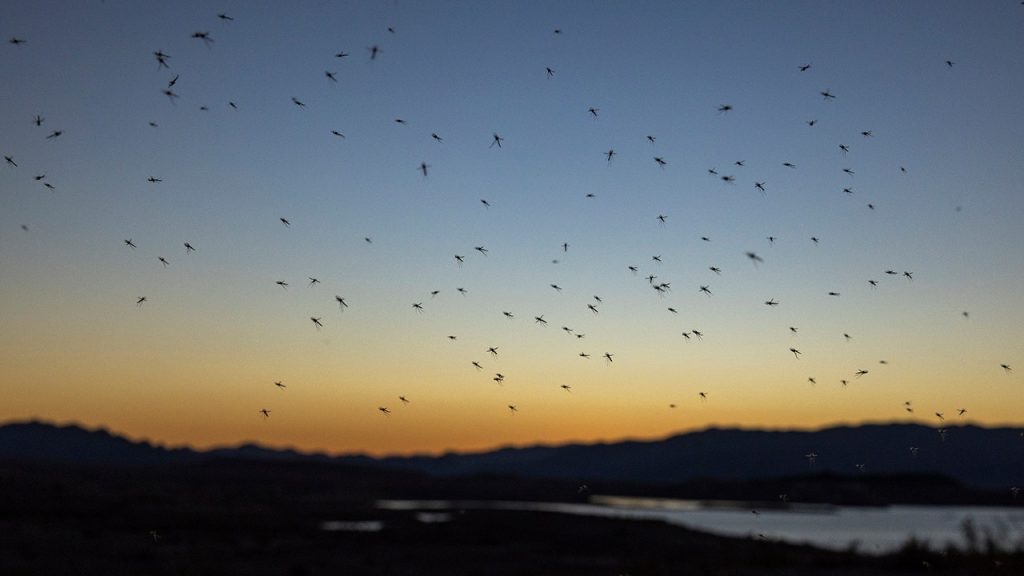Officials in a Texas town are attributing an explosion in mosquito populations to climate change, as flood-inducing rains have created ideal breeding grounds for the pesky insects. Residents in the Houston suburb of Conroe, such as Mith Varley and Linda Adams, have reported experiencing a significant increase in the number of mosquitoes in the area. Varley, who has lived in Montgomery County for nearly a decade, claims that the current situation is the worst he has ever seen. Adams, on the other hand, believes that her red hair may be attracting the mosquitoes and has resorted to using bug spray with at least 40% DEET to protect herself.
The director of mosquito and vector control in nearby Harris County, Max Vigilant, explained that while it is difficult to accurately count the mosquito population, sampling suggests levels comparable to recent years. However, Vigilant pointed to climate change as a significant factor in the worsening mosquito problem, citing earlier and hotter temperatures as contributing to the increase in mosquito activity. Harris County is home to over 50 species of mosquitoes, with the public health department focusing on targeting those that can carry diseases like West Nile virus. Residents, like tennis instructor Josue Medina, have noticed the larger and more aggressive mosquitoes this year, making it even more challenging to deal with the annual mosquito season.
As a response to the escalating mosquito problem, the World Health Organization has approved a second vaccine against the mosquito-borne disease dengue, as outbreaks continue to intensify. The prevalence of dengue and other mosquito-borne illnesses underscores the importance of proactive mosquito control measures to protect public health. Despite efforts to mitigate the mosquito population through pest control measures, residents of the Texas town are struggling to cope with the persistent presence of mosquitoes in their daily lives. Medina, who has been dealing with mosquito bites, highlights the frustration felt by many residents as they contend with the nuisance of these insects.
The increased prevalence of mosquitoes in the Texas town serves as a stark reminder of the impact of climate change on local ecosystems and public health. The changing climate patterns have created more favorable conditions for mosquito breeding, leading to larger and more aggressive mosquito populations. While local authorities and residents are working to address the issue through mosquito control efforts, the scale of the problem poses significant challenges. The approval of additional vaccines against mosquito-borne diseases like dengue reflects the urgency of the situation and the need for comprehensive strategies to combat the growing threat of mosquito-borne illnesses.
As the mosquito season progresses, residents in the affected Texas town remain vigilant in protecting themselves against mosquito bites and associated diseases. The reliance on bug spray and other preventive measures underscores the ongoing battle against these insects and the importance of personal protection. While the underlying factors driving the surge in mosquito populations, such as climate change, may be challenging to address in the short term, efforts to control mosquitoes and reduce their impact on public health remain crucial. The resilience and adaptability of communities facing mosquito infestations are being tested, highlighting the need for coordinated local and regional responses to mitigate the threat posed by these disease-carrying insects.













